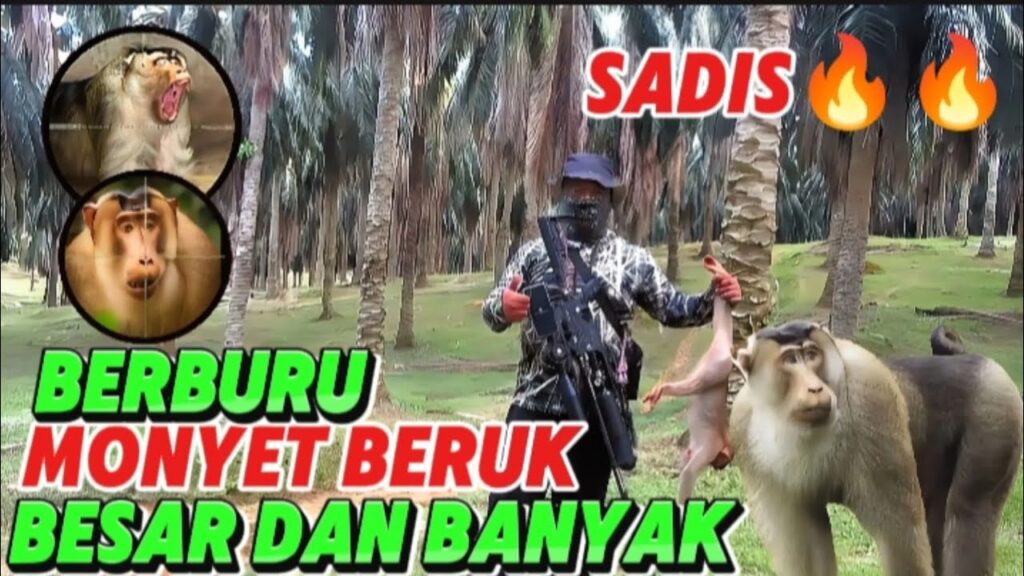
Macaques are known for their adaptability. They thrive in forests, villages, and even urban areas, adjusting quickly to human presence. With palm oil plantations expanding into their natural habitats, these monkeys see the neatly planted rows of fruit-bearing palms as an unlimited food source. What might seem like a quick snack to a monkey results in hundreds of damaged trees for a farmer. The fruit bunches, once torn apart, are no longer marketable, leading to severe financial strain.
In some regions, families report losing as much as half their harvest to the monkeys. This is not just a small inconvenience—it can mean the difference between sending children to school or keeping food on the table. Out of desperation, residents have turned to organizing hunts to drive the macaques away. These hunts are often community-wide efforts, where groups of men band together to chase, trap, or even cull the monkeys. While effective in the short term, it is not a long-lasting solution. Macaques are clever and reproduce quickly, meaning the population often rebounds within months.
The destruction goes beyond just eating fruit. Macaques will strip young palm shoots, damage the bark, and trample saplings. This slows plantation growth and lowers productivity. The more the monkeys raid farms, the bolder they become, often entering villages to snatch food or destroy gardens. Some residents even report macaques raiding kitchens and taking rice or vegetables. The conflict, once limited to the fields, is now at people’s doorsteps.
However, conservationists warn against hunting as the only response. They argue that macaques are simply following survival instincts after losing much of their natural forest habitat to human development. Palm oil expansion has forced them into closer contact with people. Without addressing the root causes—habitat loss and lack of food sources in the wild—the conflict will only continue.
Some communities are experimenting with alternatives, such as using noise devices, guard dogs, or planting buffer crops that monkeys dislike. Others are working with wildlife agencies to create designated feeding zones away from plantations. Education programs also aim to teach residents about non-lethal deterrent methods. These solutions require patience and cooperation, but they offer hope for reducing conflict without eradicating wildlife.
The story of the Mack monkeys and palm oil farmers highlights the complex relationship between humans and nature. It is a reminder that when economic development pushes into wild habitats, conflicts are inevitable. Finding balance is not easy, but it is necessary for both people and wildlife to survive.


